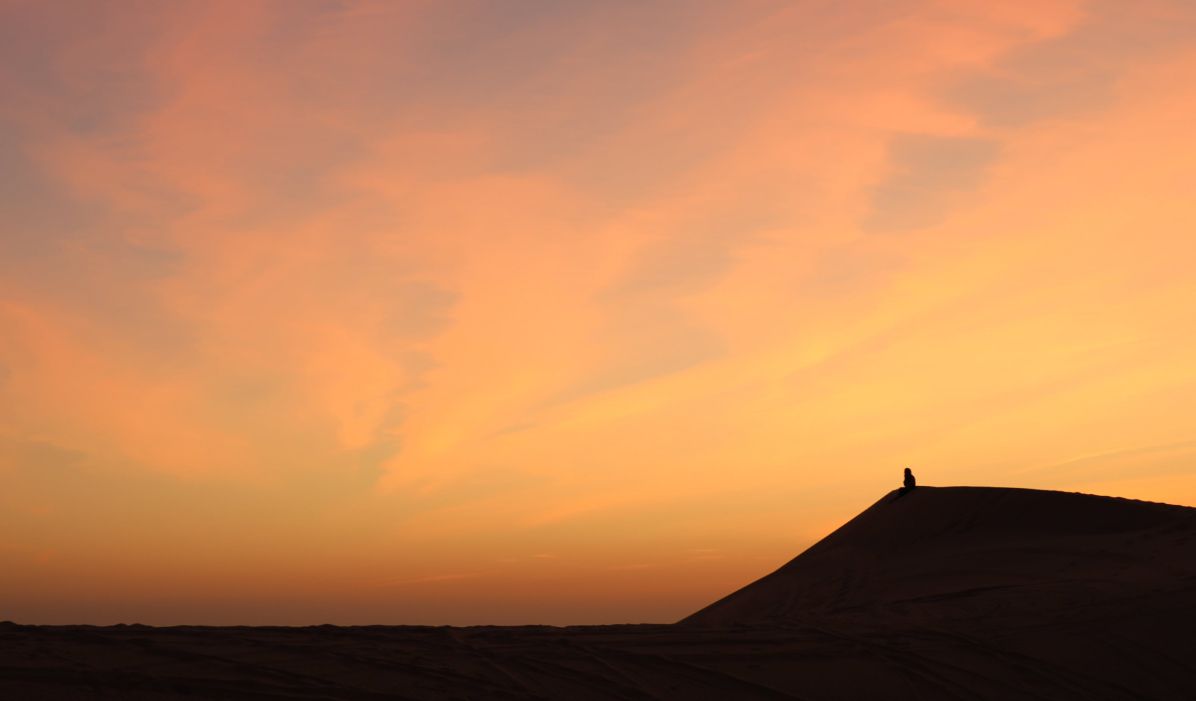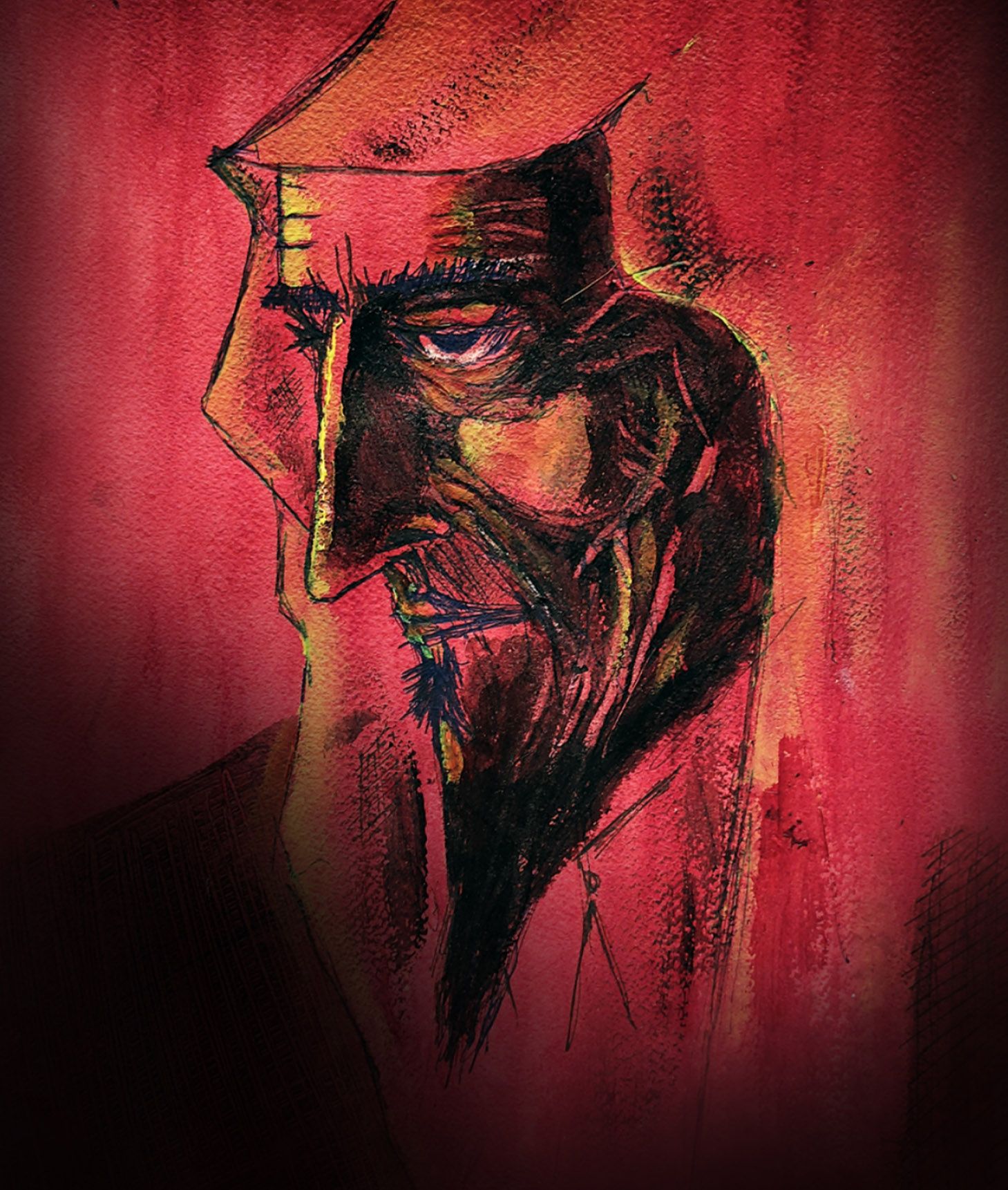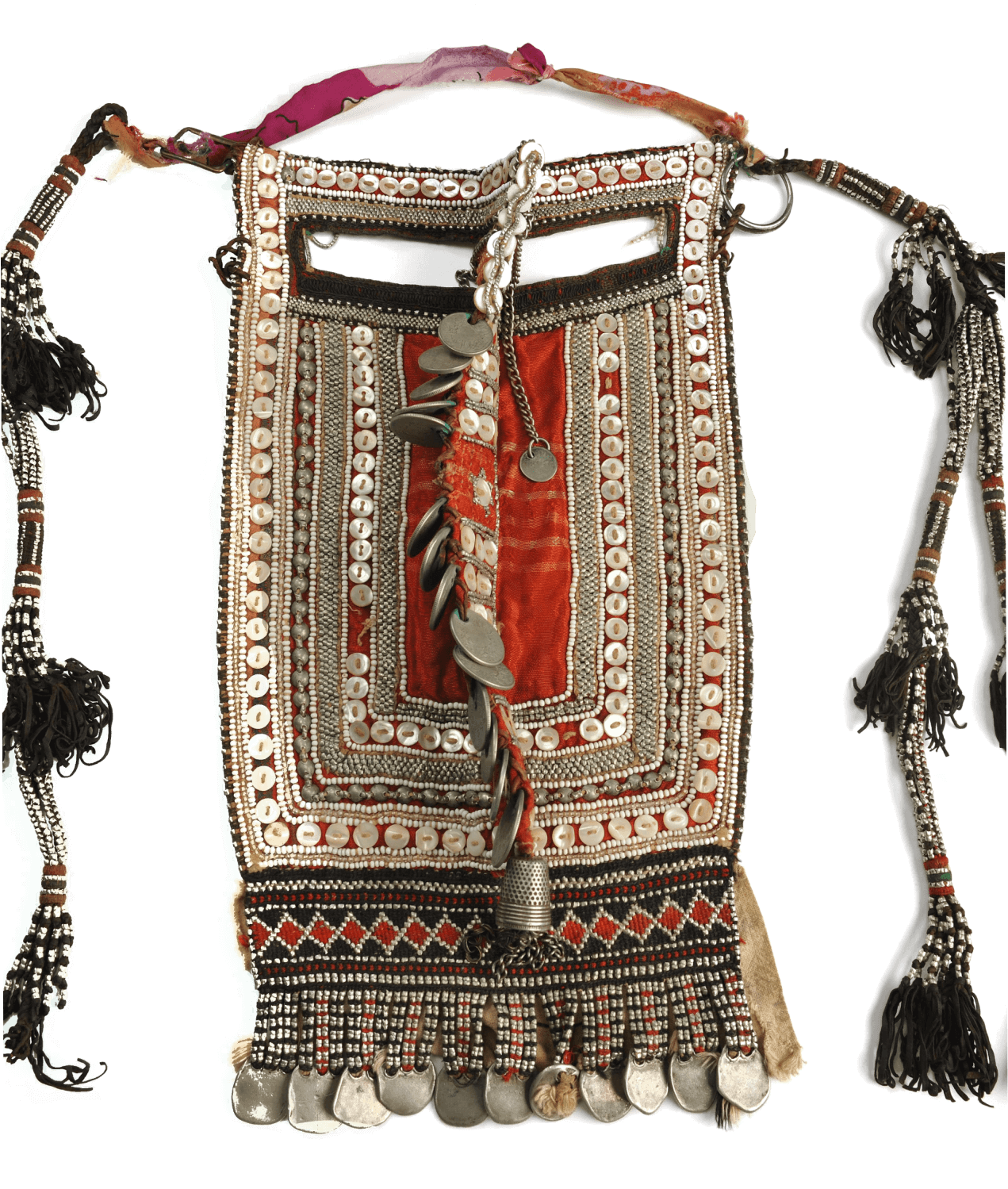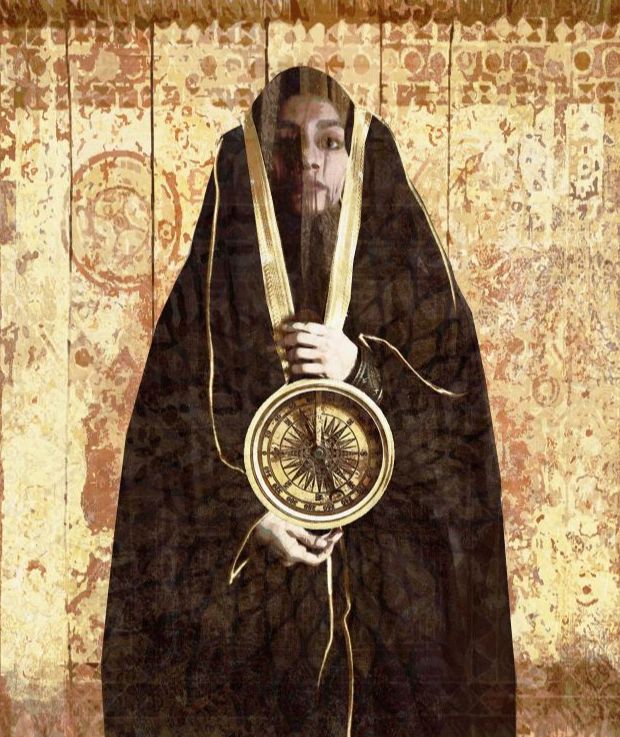Letter to Our Beloved Desert
Photograph from Hafsa Al-Khudairi.
A lot of people portray you as a dystopian or apocalyptic landscape and your people as wild. “Repetitive misrepresentation of Arab land by Hollywood is an indication that this practice not only serves to create meaning but is also a willful attempt at dehumanizing the people and the land.
The manipulation of Arab lands in such a manner stresses the barbaric aspects of both land and dweller,” wrote Hania Nastef in her paper ‘Barbaric space: Portrayal of Arab Lands in Hollywood Films’ in Popular Culture In The Middle East And North Africa: A Postcolonial Outlook.
Basically, instead of being praised, the desert and its people are turned into beings who survive on the idea of ‘kill or be killed.’ The desert has become a shorthand of adversity and survival instincts. The idea that throwing away all societal rules, values, and expectations is associated with the desert is heartbreaking when it is a land of many people and many ideas. However, to claim that only Hollywood has misrepresented you is a disservice. So many stories take place in the desert that are violent and desolate. Setting aside the differences in quality, we have books like Dune or the Alchemist, movies like Mad Max: Fury Road, TV shows like Homeland and many others.
They portray you as a landscape that must be survived and fought in order to win or they would have to find a mythological paradise outside of your borders. They even show your dust storms as a destructive force of evil like in the animated Wall-E. You aren’t barbaric or savage nor are your people. You don’t inspire people to lose their values and your sand isn’t destructive. They don’t see you as we see you, as I see you.
The truth is that your landscape is gorgeous and
there is so much hope and life in it. Your people
have not only survived, but have thrived beyond
imagination. They are innovative, and have cities
and technologies. We now live around and within
you and visit the vast expanse of your land
recreationally. Like your creatures, we burrow in
our houses in the summer and explore our lands in
the night and winter.
You are more than meets the eye since the life
you harbor is underneath your sand. Iris seeds are
protected under your surface only to bloom with
the first drop of water. Your lands can turn into
lakes. Your animals are unique and gorgeous like
the Arabian leopard, sand cats, Saluki dogs, and
desert hedgehogs. Everything within your land has
adapted to your harshness and even basks in it.
You may be a desert but you aren’t deserted and
you will never be.

Photograph from Hafsa Al-Khudairi.
We have admired you and loved you for centuries before you even were a desert. Moreover, we have seen you, appreciated you, built our tribes around you, and created stories, traditions, and heritage within you. We have shows like the Saudi Anime Future Folktales, poetry books like “Shairat min Al-Badiyah” by Abdallah Ibn Raddas (Desert Voices: Bedouin Women’s Poetry in Saudi Arabia), movies like Bunwirah, comics like Latifa, and artworks like Book of Sand by Mohannad Shono or Earthseed by Ayman Zeidani and so much more. Desert dwellers love your land and we have created odes to your beauty and land.
Exploring our odes, they come in so many different shapes and forms. They all include you in a direct or indirect manner. Some discuss how the future would look like in your lands, whether they explore it positively like in Saudi Folktales or Book Of Sand, apocalyptically like Latifa and Bunwirah, or with distress like Earthseed. Each of these pieces approach the desert in a different way.
Saudi Folktales is an inspirational piece about the future and a reflection of the past. It shows the beautifully developed idea of how we could have a future in this land and become a beacon of advancement. Book of Sand is a lovely exploration of the hidden treasures under the surface of the sand and how dust storms can be miracles that reveal lost civilizations and stories. Despite portraying the apocalypse, Latifa returns
to the basics of desert living and the harshest part of it are the mutant monsters, which could be a commentary on the savage orientalist interpretation of the people of the desert. Buniwirah, on the other hand, takes a mythical story about Jinn and brings it to life, showing how the desert can protect you as long as you know how to treat it well and understand its dangers.
Finally, Earthseed is a great exploration of climate change fears in the Gulf region showcasing beautiful scenes or the desert with a narrator exploring a science fiction voice over. All these stories are ways we are reclaiming our narrative of the desert.
My dearest desert, we are taking back the narrative from those who have created a shorthand about you, deforming your image from what we know and what we recognize. I hope we continue to reclaim your land to show you how much we love you and care about you as you have cared and loved us. Despite your harshness and the time it took us to build full and healthy lives, you have always been in our hearts. Even when we had to migrate away from you in search of resources due to scarcity, you made up for it by providing us with the precious oil hidden within your depth that gave us the life and lifestyle we have now. So, ignore their limited portrayals of your land and bask in the glory your people have dedicated to you. Our Desert is not Your Dystopia.
All my love, Your desert dweller


